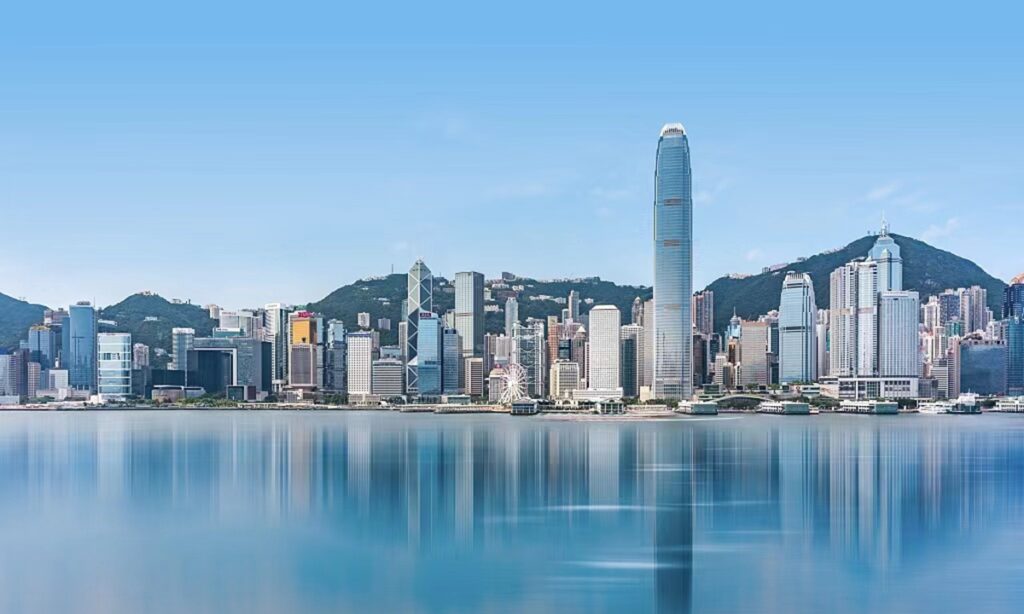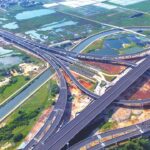Hong Kong’s economic recovery has got off to a solid start with the reopening of the border with the Chinese mainland and adjustment of COVID-19 response.
A significant revival in inbound tourists during the Spring Festival holidays boosted the special administrative region’s retail sale and tourism sector.
An expert projected that Hong Kong’s GDP will likely expand 2.5-3 percent this year, saying that the region should actively engage with the country’s overall strategies and further integrate itself with the grand plan of Guangdong-Hong Kong-Macao Greater Bay Area (GBA).
“During the 7-day holidays, Hong Kong’s tourism and retail sectors showed an apparent rebound compared with two years ago, with more tourists seen in shopping malls and scenic spots,” Timothy Chui Ting-pong, director of the Travel Industry Council of Hong Kong, told the Global Times on Monday.
Ken Wong, director of Hong Kong-based All Times Healthy Co, told the Global Times that the company’s sales of healthcare products increased during the festival thanks to the comeback of mainland tourists.
“Hong Kong’s retail sector is recovering, with many tourists patronizing gold stores, pharmacies and restaurants,” he said.
According to the local media, Hong Kong received more than 400,000 visitors from January 21-25. During the festival, a daily average of 70,000 visitors passed through land ports between Hong Kong and Shenzhen, South China’s Guangdong Province, with a peak of 90,000 visitors on January 25.
HKSAR Financial Secretary Paul Chan Mo-po wrote on his blog on Sunday that Hong Kong’s economy this year will outperform last year, thanks to the reopening of the Hong Kong-mainland border and the removal of COVID-19 restrictions.
Liang Haiming, chairman of the China Silk Road iValley Research Institute, projected Hong Kong’s GDP may grow 2.5-3 percent in 2023, noting that the mainland’s support will play an important role to the growth.
“About one-third of Hong Kong travel agencies’ revenues come from mainland group tours. The influx of mainland tourists will stimulate the city’s tourism and spending,” Liang told the Global Times, noting that more mainland-based firms will be listed on the Hong Kong bourse.
He said that Hong Kong’s capital market is poised for a rebound in 2023, with the proceeds raised via IPOs expected to jump over 100 percent year-on-year. That will help the city return to its place among the top three global IPO hubs and cement its standing as an international financial center.
Hong Kong has to contend with other challenges such as higher interest rates and weakening global demand.
Businesses in Hong Kong are cautiously optimistic that the worst may be behind them, with 40 percent of respondents expecting an increase in trading turnover in 2023 compared with last year, according to a survey released by the Hong Kong General Chamber of Commerce in early January.
“Hong Kong should seize the opportunity of border reopening to actively engage with the country’s overall development strategy, and further integrate with the building of the GBA to emerge from its economic plight,” Liang said.
As this year marks the 10th anniversary of the Belt and Road Initiative (BRI), Hong Kong Chief Executive John Lee Ka-chiu vowed that the HKSAR government will make full use of the opportunity to strengthen ties with other BRI economies.
He will lead a delegation of government department heads and local business leaders to Saudi Arabia and the United Arab Emirates in early February, and will attend the Boao Forum for Asia in Hainan Province in late March.
(Global Times)




